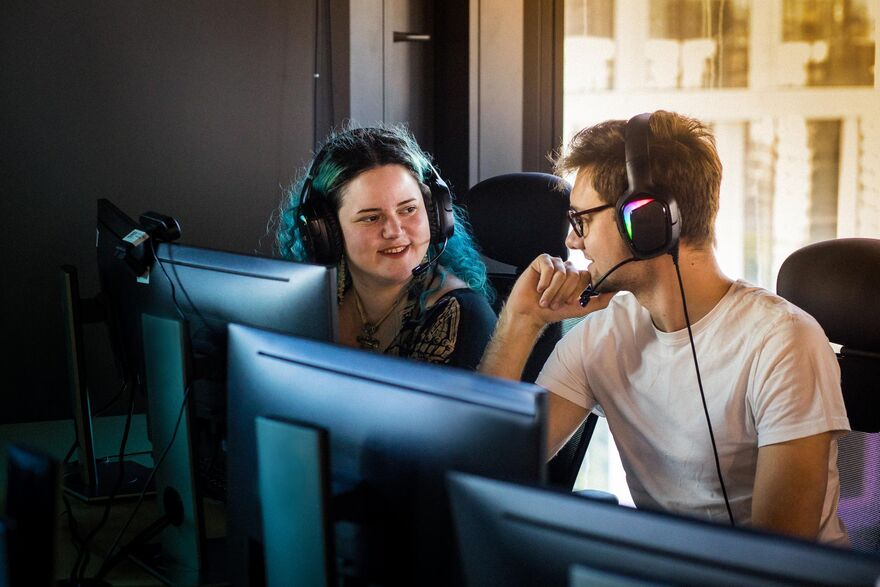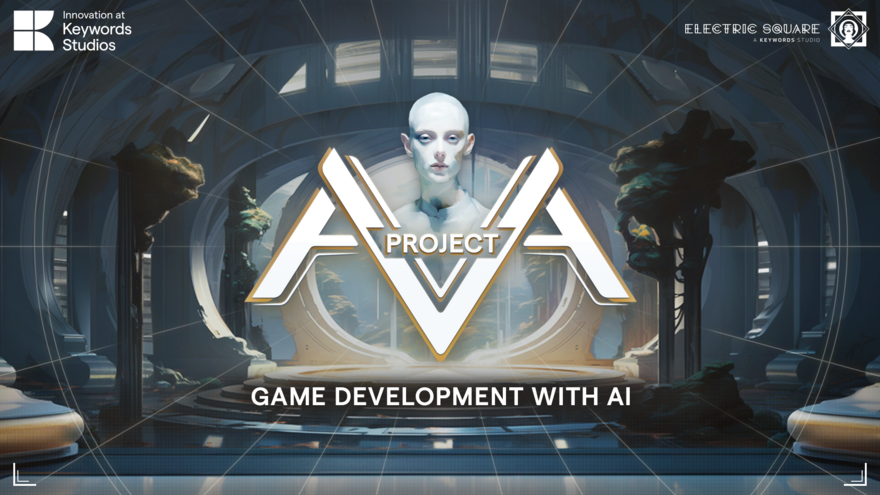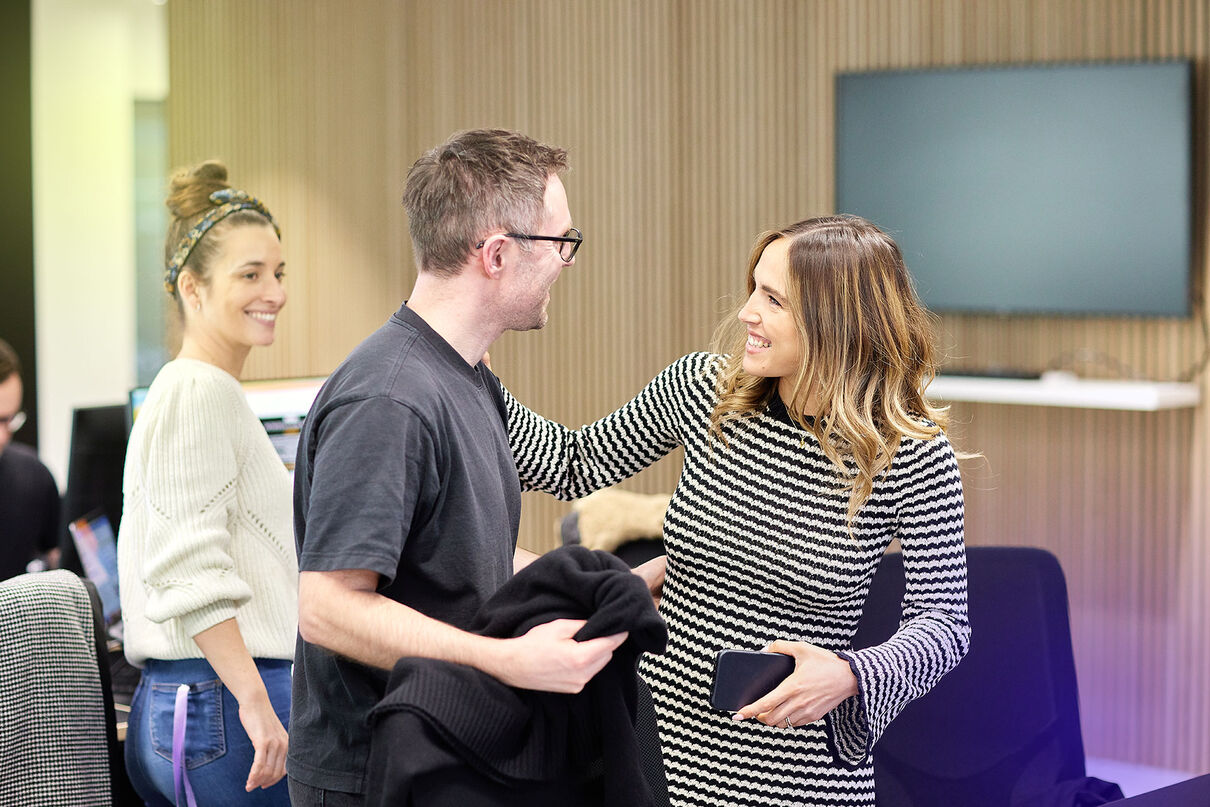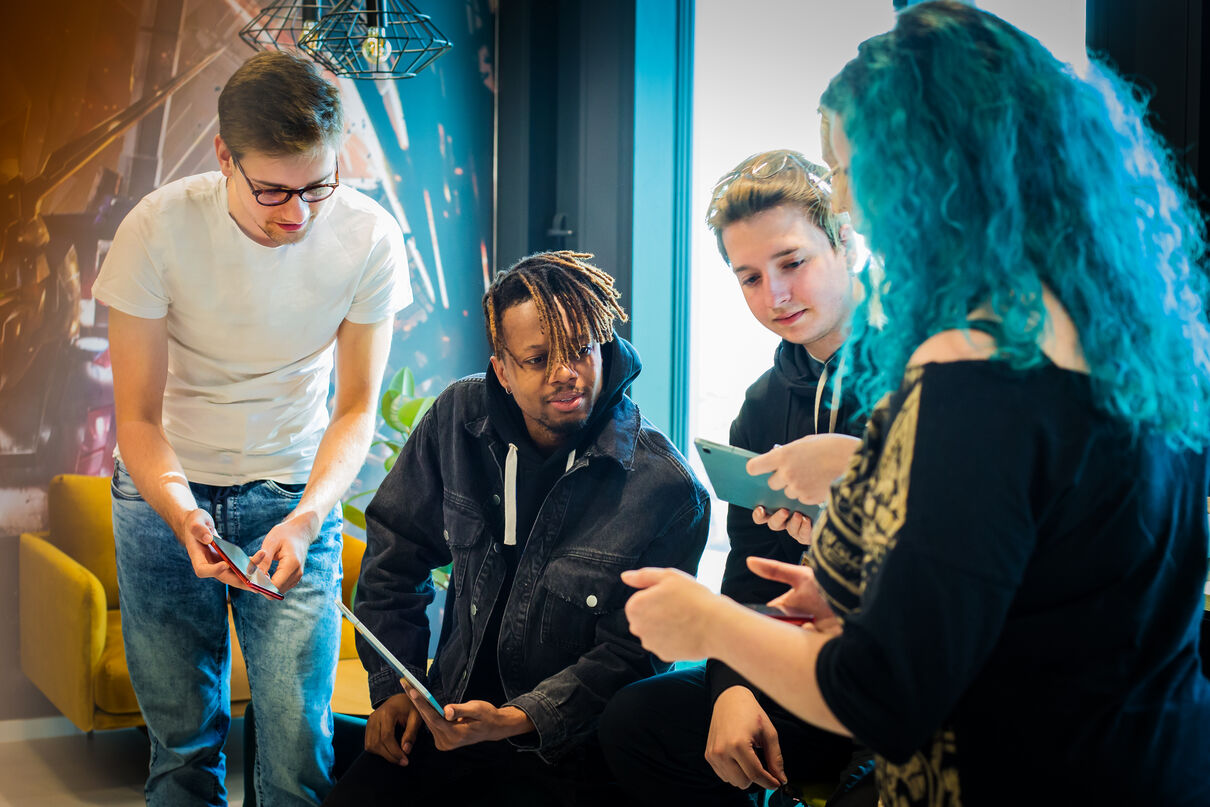Neurodiversity at Keywords: Understanding NVLD
As we develop our understanding of neurodiversity at Keywords Studios, we recognise that with all our human variation there are multiple ways to better support our colleagues.

Travis Martin, Game and Level Designer at Snowed In Studios and a founding member of our neurodiversity network – Brain Space, looks into a type of neurodivergence called nonverbal learning disability, or NVLD, and its impact in everyday life.
Introduction to NVLD
NVLD is characterised by a decreased ability to process nonverbal information. Words and language become the primary way of interacting with the world and other people. It is often misdiagnosed with Autism Spectrum Disorder (ASD) and Attention Deficit & Hyperactivity Disorder (ADHD), as they all share common symptoms. I prefer to refer to these as brain types, rather than disabilities.
The effects of this brain type are potentially enormous. Many aspects of life can be made difficult or impossible when nonverbal information is not processed properly, including but not limited to:
Spatial reasoning and awareness
- Motor skills
- Observation
- Social cues / social contract
- Concepting / abstraction
- Nonverbal communication
- Body language
- Subtext / intention
- Facial expressions
- Innuendo / inference
- Metaphor
- Sarcasm
- Adapting to new situations or change
These challenges can put a person with NVLD at a disadvantage in everyday life, where we are expected to understand certain principles of social engagement. The cost is sometimes to be shunned and excluded. Imagine playing a game where you don’t know the rules. Then when you break the rules, you're removed from the game. Doesn’t sound like fun to me.
Communication
Did you know that at least 65% of face-to-face communication is nonverbal? That means a person with NVLD might only be receiving and registering one third of a conversation. Furthermore, they will not necessarily be able to learn from social interactions.
Generally, people learn how to function in society during adolescence. With NVLD, and without proper support, this leads to an absence of important “training”, which is arguably the most important part of growing up. Later in life, this may lead to significant problems holding a job or integrating into a social group. Talking too much, too loudly, or about things that are considered taboo are a common consequence of this. Since information on this brain type is so scarce, the people around someone with NVLD might just think “What’s wrong with them?” instead of displaying the compassion needed.
On the positive side, people with NVLD often have highly developed verbal communication. They have different thought patterns and perspectives which they will eagerly share. Since it can be difficult to make and keep friends/jobs, people with NVLD can be extremely loyal and caring to those that take the time to understand them.

Understanding
Talking to someone with this brain type requires a whole new approach. Tell them how you’re feeling, since they may not be able to tell, even if it’s “obvious” by your tone of voice and demeanor. When asking questions or making requests, tell them why you are asking. In general, tell them explicitly what you want rather than expecting them to infer based on context.
My hope is that, by reading this, you may be prepared for an encounter with someone with NVLD. If someone is not behaving as you’d expect, or seems oblivious to something that should be obvious, stop and consider. Replace your frustration with compassion. Find common ground and take the time to figure out how best to communicate.
Making the Effort
At Keywords, we want to be inclusive and welcoming to everyone, regardless of how their brain works. I think NVLD poses challenges even to people who want to be open and welcoming. You may have to completely relearn how to manage a relationship, which takes a lot of energy. But it’s worth the effort, as this person is guaranteed to come in with a totally new and insightful perspective.
In my work as a game designer, it’s crucial to get into the heads of my target audience. Make a study of psychology and neurodiversity: it will make you a better person and a better designer.
Additional Reading:










